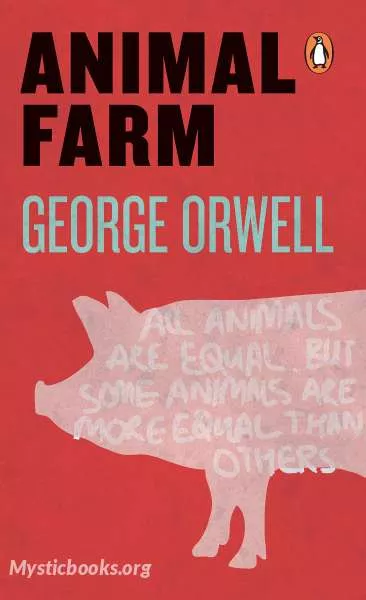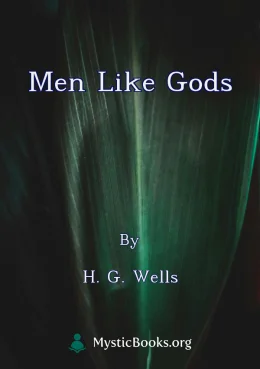
Animal Farm
'Animal Farm' Summary
Animal Farm is a satirical allegorical novella by George Orwell, first published in England on 17 August 1945. The book tells the story of a group of farm animals who rebel against their human farmer, hoping to create a society where the animals can be equal, free, and happy. Ultimately, the rebellion is betrayed, and under the dictatorship of a pig named Napoleon, the farm ends up in a state as bad as it was before.
The story is set on Manor Farm, a small farm in England. The animals on the farm are treated poorly by their human farmer, Mr. Jones. One day, the animals are inspired by a speech given by Old Major, an old boar, who tells them that they should rebel against Mr. Jones and create a society where all animals are equal. The animals overthrow Mr. Jones and establish a new society based on the principles of Animalism, a philosophy created by Old Major.
The animals work hard to make the farm a success. They work long hours and produce more food than they ever did under Mr. Jones. The animals are happy and content with their new life. However, not everyone is happy with the new society. Napoleon, a pig, is ambitious and power-hungry. He wants to control the farm and make himself the leader. Napoleon eventually succeeds in taking control of the farm and establishing a dictatorship. He uses violence and intimidation to keep the other animals in line. Under Napoleon's rule, the farm becomes just as bad as it was under Mr. Jones.
Animal Farm is a powerful allegory for the Russian Revolution of 1917 and the subsequent rise of Joseph Stalin. The characters in the story represent real-life figures from the Russian Revolution, and the events of the story mirror the events of the Russian Revolution. For example, Old Major represents Karl Marx, the founder of communism. Napoleon represents Joseph Stalin, the dictator of the Soviet Union. The pigs in general represent the Communist Party of the Soviet Union.
Animal Farm is a warning about the dangers of totalitarianism. It shows how easily a revolution can be betrayed and how quickly a society can become corrupt. The book is a reminder that we must always be vigilant in protecting our freedom and our rights.
"All animals are equal, but some animals are more equal than others."
Key points in Animal Farm Summary
Animal Farm is a cautionary tale that highlights the dangers of totalitarianism, emphasizing how easily a revolution can be corrupted and a society can become corrupt. The novel underscores the corrupting influence of power, as Napoleon, a ruthless dictator, uses violence, intimidation, and propaganda to maintain his control over the farm. It also emphasizes the significance of freedom and equality, revealing how the initial dream of an egalitarian society is shattered by the pigs' ascent to power, leading to a stark contrast between their luxurious lifestyle and the other animals' poverty.
Propaganda is depicted as a potent tool for manipulating and controlling the masses, as Napoleon distorts history and instills division and distrust among the animals. Moreover, the story underscores the empowering role of education, as the animals' ability to read and write allows them to challenge the authority of the ruling pigs. Ultimately, Animal Farm serves as a reminder of the importance of remaining vigilant in safeguarding freedom and rights, highlighting the consequences of complacency and the need to protect against those who seek to undermine these fundamental values.
Book Details
Authors

George Orwell
England
Orwell's work remains influential in popular culture and in political culture, and the adjective "Orwellian"—describing totalitarian and authoritarian social practices—is part of the English language,...
Books by George OrwellDownload eBooks
Listen/Download Audiobook
- Select Speed
Related books

Revolt of the Angels by Anatole France
Anatole France's *Revolt of the Angels* delves into the complexities of heaven and earth through the lens of a mischievous angel named 'Miel.' As a g...

Favole di Jean de La Fontaine: Libro 03 by Jean de La Fontaine
Nei 12 volumi delle "Favole" (1669 - 1693) Jean de La Fontaine rinnovò la tradizione esopica, rappresentando la commedia umana. Quest'opera dimostrò i...

Aesop's Fables, Volume 01 (Fables 1-25) by Aesop
Dating back to the 6th century BC, Aesop's Fables tell universal truths through the use of simple allegories that are easily understood. Though almost...

Perfect Wagnerite by George Bernard Shaw
George Bernard Shaw's *The Perfect Wagnerite* is a critical and philosophical commentary on Richard Wagner's monumental opera cycle *Der Ring des Nibe...

Out of the Dark by Helen Keller
Out of the Dark: Essays, Lectures, and Addresses on Physical and Social Vision is a collection of writings by Helen Keller, an advocate for the deaf a...

Favole di Jean de La Fontaine: Libro 07 by Jean de La Fontaine
Nei 12 volumi delle "Favole" (1669 - 1693) Jean de La Fontaine rinnovò la tradizione esopica, rappresentando la commedia umana. Quest'opera dimostrò i...

Vital Question, or, What is to be Done? by Nikolai Chernyshevsky
'What Is To Be Done?' is a novel by Nikolai Chernyshevsky, written during his imprisonment in the Peter and Paul Fortress in St. Petersburg. The novel...

Aesop's Fables, Volume 11 (Fables 251-275) by Aesop
Dating back to the 6th century BC, Aesop's Fables tell universal truths through the use of simple allegories that are easily understood. Though almost...

Men Like Gods by H. G. Wells
In H.G. Wells's *Men Like Gods*, a journalist named Mr. Barnstaple finds himself unexpectedly transported 3,000 years into the future. He arrives in a...

Tortoises by D. H. Lawrence
A curious secret lies hidden beneath the ancient shells. Delve into a mesmerizing tale where the ordinary meets the extraordinary, and the timeless wi...
Reviews for Animal Farm
